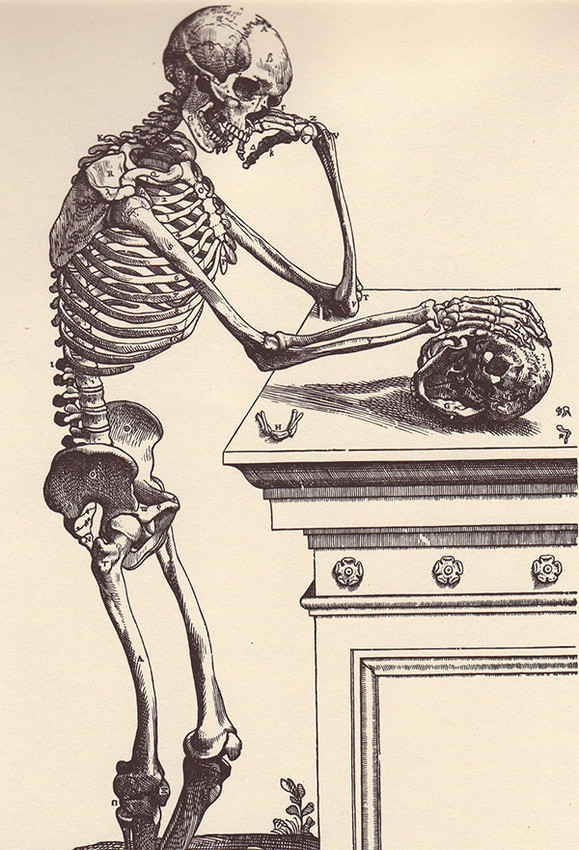
FAYETTEVILLE, Ark. – The concept of “bad medicine” summons up visions of medieval bleedings, blisterings, cauterizations and other practices where doctors failed to follow the Hippocratic dictum to “first do no harm.” Tricia Starks, an associate professor of history, will explore how medical abuse has persisted and flourished in the modern era, even in the United States, during a free public lecture at 5:15 p.m. Wednesday, Feb. 14, in Gearhart Hall Auditorium, room 26. All are invited to attend.
“In the past hundred years we’ve seen a triumph in public health – we’ve come a long way,” Starks said. “But there have also been times when medicine goes bad.”
For example, Starks points to the infamous Tuskegee Syphilis Experiment (1932-1972), which followed the progression of untreated syphilis in African-American sharecroppers in Alabama under the guise of receiving free health care from the U.S. government.
More recently, hospital patients in long-term care suffered questionable deaths in post-Katrina New Orleans, and connections have been drawn between high-profile philanthropy and high-profit OxyContin, which has ushered in an epidemic of opioid addiction and deaths by overdose.
“Indifference from medical authorities for the rights of people of color, for poor people, for women did not suddenly emerge with Tuskegee, the Holocaust, or in the aftermath of Hurricane Katrina,” Starks said. “It took centuries of racism, misogyny and paternalistic disregard in medical education, practice and ethics.”
Signature Seminars Explore Cutting-Edge Topics
Starks’ public lecture serves as a preview for her Honors College Signature Seminar, “Bad Medicine,” scheduled for fall 2018. Previous Signature Seminars, designated HNRC 4013H in the university’s Catalog of Studies, have addressed topics ranging from the evolutionary tales told by fossil teeth to the tensions between privacy and efficiency posed by the internet.
In addition to Stark’s course, two other Signature Seminars will be offered next fall: “Free Speech,” taught by Mark Killenbeck, a Distinguished Professor who holds the Wylie H. Davis Endowed Chair in the School of Law, and “Water Scarcity,” led by Eric Wailes, a Distinguished Professor who holds the L.C. Carter Endowed Chair in the Department of Agricultural Economics and Agribusiness.
Deans of each college may nominate professors to participate, and those who are selected to teach will become Dean’s Fellows in the Honors College. Over time, the Honors College plans to bring in leading scholars from other institutions to teach some of these courses as well.
Honors students must apply to participate, and those selected will be designated Dean’s Signature Scholars. The course applications are posted online on the Signature Seminars web page.
About Tricia Starks
Tricia Starks completed her Bachelor of Arts in Russian area studies at the University of Missouri and her Master of Arts and Doctor of Philosophy in history at Ohio State University. She joined the Department of History in the J. William Fulbright College of Arts and Sciences at the University of Arkansas in 2000 and has taught courses in the history of medicine, world history, Russian and Soviet history, and gender history.
Starks is a member of the University of Arkansas Teaching Academy, and has been named a Master Teacher in Fulbright College and a Student Alumni Board Teacher of the Year. She has mentored honors students and graduate students who have gone on to programs in Russian history and history of medicine as well as students pursuing higher degrees in education, law and medicine.
Starks’s primary area of expertise is the history of medicine in Russia and the Soviet Union. She is author of The Body Soviet: Propaganda, Hygiene, and the Revolutionary State (University of Wisconsin Press, 2008) and the forthcoming Smoking under the Tsars: A History of Tobacco in Imperial Russia. (Cornell University Press, 2018). She is completing a manuscript on tobacco use in the Soviet period. She has received funding from the Fulbright-Hays, the Kennan Institute for Advanced Russian Studies, the National Councils for East-European and Eurasian Research, the National Institutes of Health and the National Library of Medicine to pursue her research.
About the Honors College: The University of Arkansas Honors College was established in 2002 and unites the university’s top undergraduate students and professors in a learning environment characterized by discovery, creativity and service. Each year the Honors College awards up to 90 freshman fellowships that provide $70,000 over four years, and more than $1 million in undergraduate research and study abroad grants. The Honors College is nationally recognized for the high caliber of students it admits and graduates. Honors students enjoy small, in-depth classes, and programs are offered in all disciplines, tailored to students’ academic interests, with interdisciplinary collaborations encouraged. Fifty percent of Honors College graduates have studied abroad – three times the national average – and one hundred percent of them have engaged in mentored research.
About the University of Arkansas: The University of Arkansas provides an internationally competitive education for undergraduate and graduate students in more than 200 academic programs. The university contributes new knowledge, economic development, basic and applied research, and creative activity while also providing service to academic and professional disciplines. The Carnegie Foundation classifies the University of Arkansas among only 2 percent of universities in America that have the highest level of research activity. U.S. News & World Report ranks the University of Arkansas among its top American public research universities. Founded in 1871, the University of Arkansas comprises 10 colleges and schools and maintains a low student-to-faculty ratio that promotes personal attention and close mentoring.
Topics
Contacts
Lynda Coon, Dean
Honors College
479-575-7678,
Kendall Curlee, director of communications
Honors College
479-575-2024,